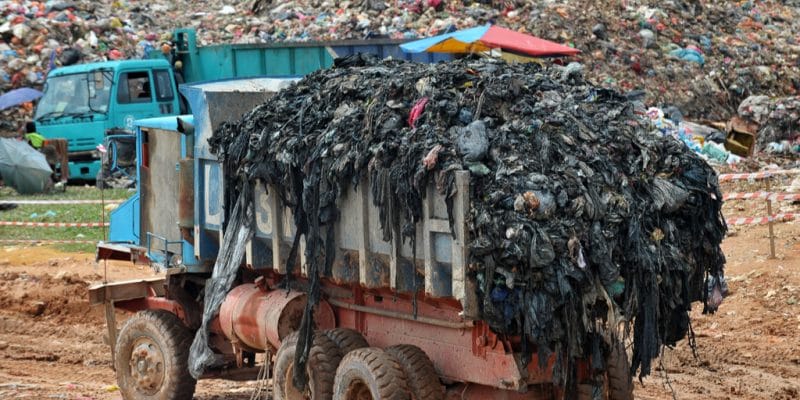A framework agreement has recently been signed between the British company BlueMac and the National Organization for Military Production in Egypt. The aim is to create a joint venture in waste management.
A joint venture will soon be set up for waste management in Egypt. A framework agreement has been signed to this effect between the company BlueMac, based in Northern Ireland, United Kingdom, and the National Organization for Military Production, a public agency of the Egyptian Ministry of Military Production. The agreement was signed in the presence of Egypt’s Minister of Military Production, Mohamed El-Assar, and Jeffrey Donaldson, UK Trade Representative.
The announcement was made at the British Embassy in Cairo. The future joint venture will design, supply and install “high-tech and tailor-made” waste management centres in several cities in Egypt. “I am particularly pleased to see that a world-class Northern Irish company is supporting Egypt’s growing expertise in the waste management sector,” said Jeffrey Donaldson, UK Trade Representative.
It is not possible at this stage to know more about the content of the agreement signed between the Northern Irish company and the Egyptian authorities. However, access to the waste recovery market in Egypt will above all be a gateway for BlueMac to the African continent, where the value of waste or, at the very least, the danger it poses to the environment and health is beginning to be taken into account. Egypt is currently developing its National Waste Management Strategy, which is scheduled for implementation in 2020. The plan provides for the construction of infrastructure and the rehabilitation of landfills. In Egyptian cities, fixed and mobile stations will enable people to better manage their waste. This integrated solid waste management system includes collection, sorting, transport and recycling, as well as the development of a system for the treatment and disposal of hazardous and final waste.
Some governorates did not wait until the new strategy came into force to address the problem of waste pollution. One example is Qalyubiya in the northwest, where a waste incineration plant is being built. This plant will be able to manage 40,000 tonnes of waste per day, and the heat produced by the incinerator will be used to produce electricity.
Jean Marie Takouleu







